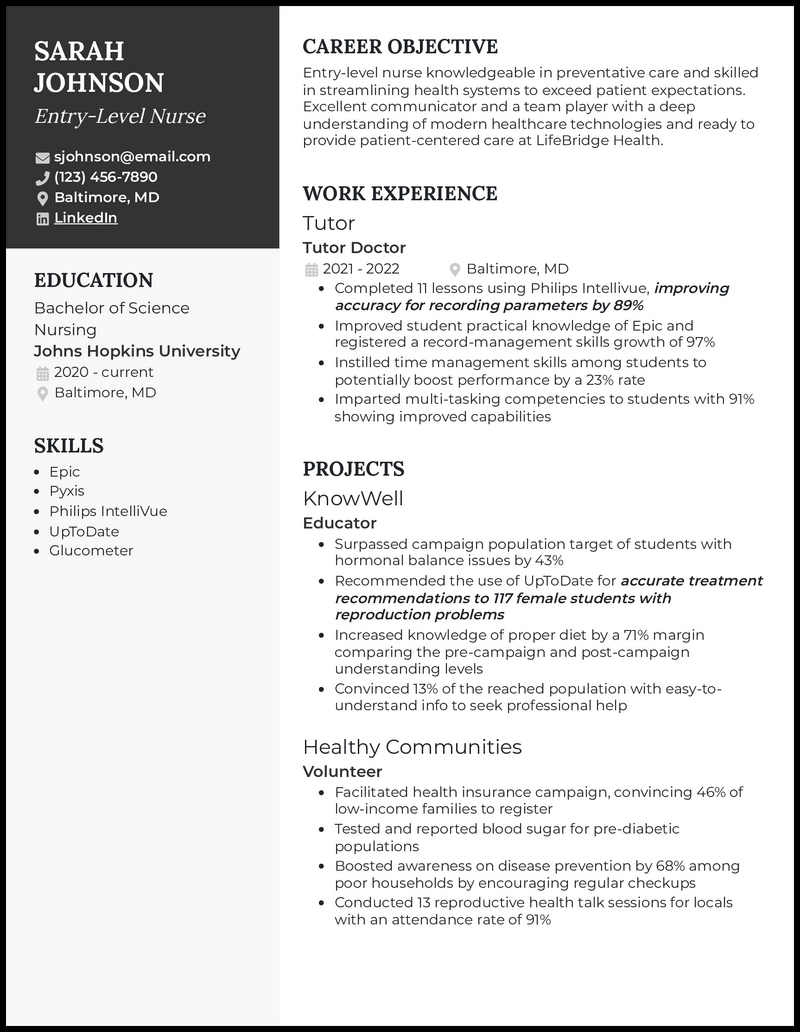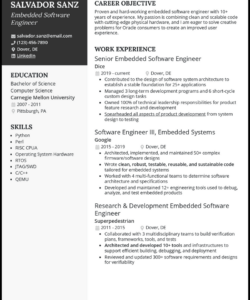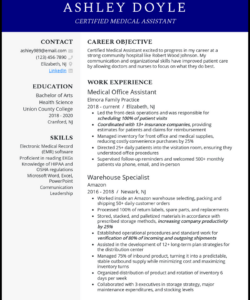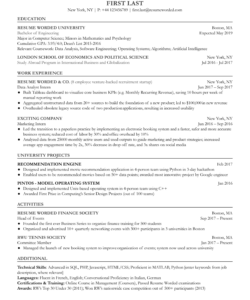So, you’ve poured your heart and soul into nursing school, aced your exams, and perhaps even tackled the NCLEX. Now, with your degree in hand, you’re ready to embark on your exciting journey as a registered nurse. But before you can don those scrubs and step onto the floor, there’s one crucial hurdle: the job application. Crafting a compelling resume that truly showcases your potential, especially when you’re just starting out, can feel a bit daunting.
This is where a well-structured and thoughtfully completed entry level nursing resume template becomes your best friend. It’s not just a document; it’s your first impression, your professional handshake, and your opportunity to tell potential employers why you are the dedicated, compassionate, and skilled nurse they need. Let’s explore how to make yours truly stand out in a competitive field.
Building Your Foundation: Essential Sections for a Winning Resume
When you’re diving into the job market as a new nurse, your resume needs to be more than just a list of places you’ve been. It’s about strategically presenting your limited professional experience in a way that highlights your readiness for the real world of nursing. Think of it as painting a picture of the nurse you aspire to be, backed by the solid education and practical experience you’ve gained. Every section is an opportunity to impress.

First impressions start with clarity, so ensure your contact information is prominently displayed and accurate. This includes your full name, phone number, professional email address, and optionally, your LinkedIn profile URL if it’s updated and professional. Immediately following this, you’ll typically include a Professional Objective or Summary. As an entry-level candidate, an Objective is often preferred, clearly stating your career aspirations and the type of role you’re seeking. For example, “Highly motivated new graduate nurse seeking an entry-level position in acute care to apply strong clinical skills and commitment to patient-centered care.”
Highlighting Your Clinical Experience
This is arguably the most critical section for an entry-level nurse, as it demonstrates your hands-on skills and exposure. Since you likely don’t have extensive full-time work experience, your clinical rotations are your goldmine. Don’t just list the hospital names and units; describe your responsibilities and the skills you utilized. Think about the types of patients you cared for, the procedures you assisted with, and the technologies you became proficient in. Use action verbs to convey your capabilities.
For instance, instead of “Worked on a Med-Surg unit,” try “Managed care for a caseload of 5-6 medical-surgical patients, including medication administration, wound care, and electronic health record documentation.” Detail any specialized experiences, such as telemetry, ICU, pediatrics, or obstetrics. Also, include your education, clearly listing your nursing degree, institution, graduation date, and any relevant academic honors. Your licenses and certifications, like your RN license and BLS/ACLS, should also be clearly stated, along with their issuing dates.
Polishing Your Entry Level Nursing Resume Template for Impact
Once you have the core sections laid out in your entry level nursing resume template, the next step is to refine and tailor it to each specific job application. A generic resume, no matter how well-formatted, rarely makes a lasting impression. Think of your resume as a marketing tool; it needs to be persuasive and speak directly to the needs of the healthcare facility you’re applying to. This means taking the time to customize it for every single opportunity.
One of the most powerful strategies is to incorporate keywords from the job description itself. Hospitals often use applicant tracking systems (ATS) to filter resumes before a human even sees them. If your resume doesn’t contain relevant keywords, it might never make it past this initial screening. Read the job posting carefully, identify key skills, responsibilities, and required qualifications, and then weave those terms naturally into your professional objective, clinical experience descriptions, and skills section. This simple step can significantly increase your chances of being noticed.
Furthermore, focus on quantifying your achievements whenever possible, even if it feels difficult as a new grad. Instead of just saying “provided patient care,” consider “Provided compassionate care to over 100 patients during clinical rotations, resulting in positive patient feedback.” While direct metrics might be scarce, you can quantify the types of procedures performed, the number of patients managed, or the efficiency with which you completed tasks. This adds a layer of professionalism and impact to your statements.
Finally, meticulous proofreading is non-negotiable. A single typo or grammatical error can undermine your credibility. Read your resume multiple times, and then have a trusted friend, mentor, or career advisor review it as well. They might catch errors you’ve overlooked. Ensure your formatting is consistent and clean, using a professional, easy-to-read font. A well-organized and error-free resume demonstrates attention to detail, a critical trait for any nurse.
Presenting a well-crafted and targeted resume is more than just a formality; it’s a strategic move in your job search. It shows potential employers that you are not only qualified but also dedicated and professional. By investing the time and effort into perfecting this vital document, you significantly increase your chances of securing that coveted interview and taking the next big step in your rewarding nursing career.


